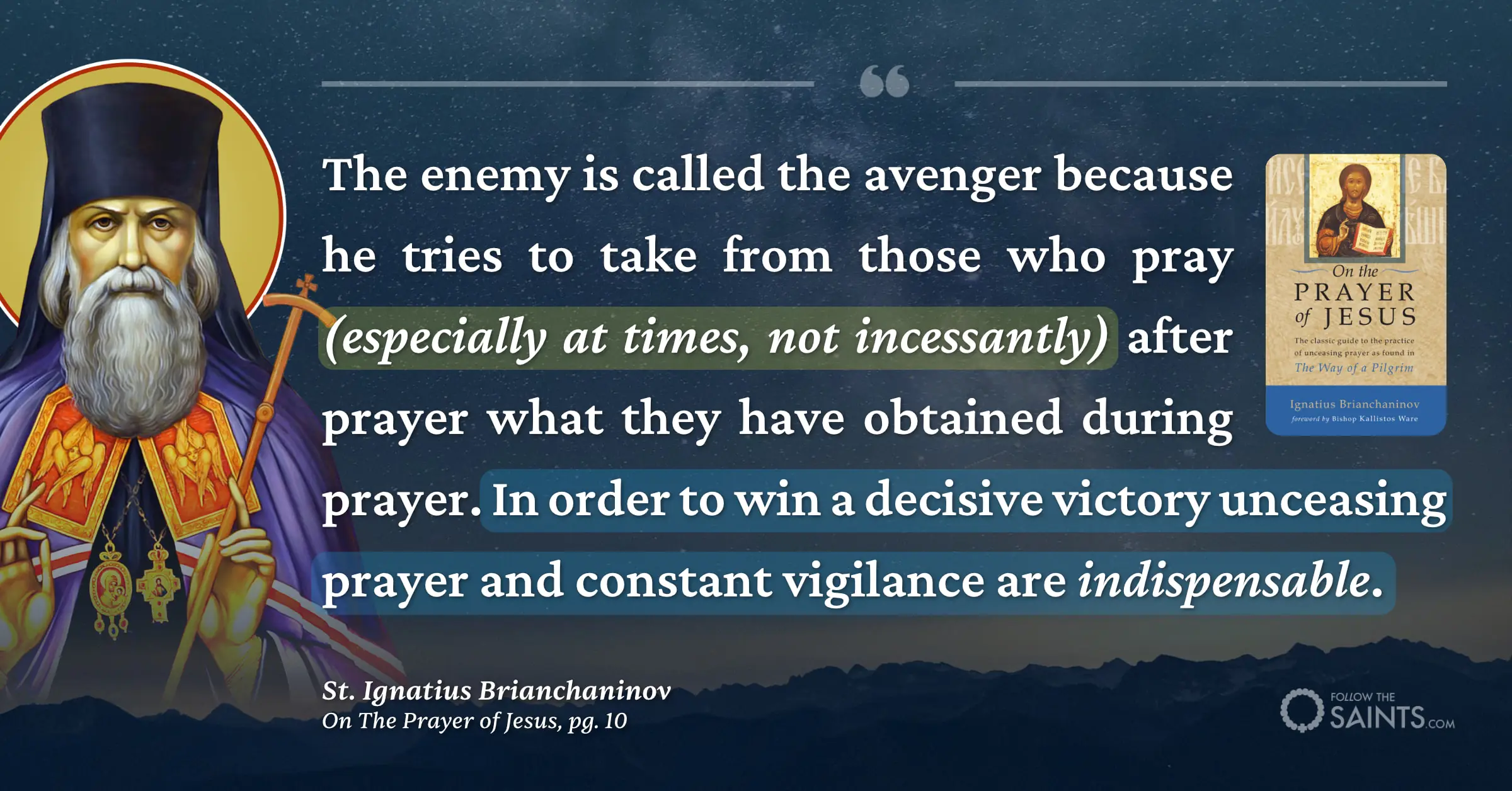On this page
Many Orthodox Christians often argue for the necessity of staying apprised of worldly news, keeping up with politics, economic developments, social issues, and cultural trends.
Numerous reasons are given to justify this:
- By doing so, we are being “as wise as serpents, and harmless as doves.” (Matthew 10:16)
- By doing so, we become able to “interpret the signs of the times.” (Matthew 16:3)
- If we do not do this, we will fall into errors and temptations.
However, what’s the issue with this?
The witness of our saints & elders
Novels, newspapers and television have no value in developing a spiritual life.
— St. Paisios the Athonite, Spiritual Awakening, pg. 112
The issue is this: this stance is given irrespective of what our illumined elders and saints say on this subject.
Where in their arguments are people giving the witness of the saints? The answer is nowhere.
We have taken the Protestant route, thinking we can interpret Holy Scripture for ourselves.
Where is a single example of saints that kept up with secular news, and encouraged those in the world to this practice as well?
What example of consuming news do we see with our monastics, whose life should be a “light for all men”? (St. John Climacus, Divine Ladder of Ascent)?
Not only did our saints not encourage consumption of news, they actively DISCOURAGED it.
Much of what one will absorb from news is superfluous.
Today with so much reading people end up like tape recorders, filling up their cassettes with superfluous matters. According to Abba Isaac, however, Wisdom not based on righteous activity is a deposit of disgrace. You see, many who are interested in sports read sports magazines and newspapers while they are sitting.
— St. Paisios the Athonite, Spiritual Awakening, pg. 110
Many people operate under the justification that watching the news is “learning” & “knowledge”, and is therefore inherently valuable. They don’t consider that they’re simply filling up with nonsense matters that our saints and elders were not at all concerned with.
How does consuming the news benefit us?
He who would pray freely and untroubled must keep himself in ignorance of the news in newspapers; nor should he read shoddy books or be curious to know details of other people’s lives. All this fills the mind with thoughts that stain, and when one would sort them out, they further and further entangle and weary the soul.
— St. Silouan the Athonite, SVS, pg. 443
If one had to prove, before a court of law, that their consumption of the news materially benefitted their lives by giving exact examples of the tangible benefit that has happened… let’s just say that many people would be locked up.
Most people consider the news beneficial, because of its “speculative” benefit.
“This piece of knowledge will help me or others later”.
But most of the time, this is simply not true.
The small amount of learning we do get from the news is usually better utilized by actual study and research for the particular topic we want to learn more about.
One can easily learn about a specific topic by doing targeted research, go find an article, or a scientific paper, or read a post. To state that one needs the news simply to stay apprised of hot topic matters, is exaggerative.
Much of the news an Orthodox Christian might consume, is written by secular people who are not at all Orthodox. If the body of Christ is lacking nothing, why are we so drawn to the writings and the worldly-focused of those who are not even Orthodox?
What does this say about us?
The majority of Christians are filled with the spirit of the world, the spirit of magazines, newspapers, and worldly writers in general, who have rather a pagan, not a Christian spirit. Their writings are imbued with the spirit of the denial of the Divine inspiration of the Holy Scriptures, with the spirit of self-exaltation, with the spirit of exaltation of their own proud and presumptuous intellect, and with the spirit of worldly vanity.
— St. John of Kronstadt, My Life in Christ, Part Two
In many worldly magazines and newspapers, the number of which has so greatly increased, there breathes an earthly spirit, frequently impious, whilst the Christian, in his hope, is a citizen not only of the earth, but also of heaven, and, therefore, he ought also to meditate upon heavenly things. The heathen writings of antiquity were, it would seem, often better and purer (Cicero, for instance), higher in their foundation and motive, than some writings of Christian peoples. The Personal Word of the Father, our Lord Jesus Christ, is continually and greatly offended by Christian people, who are gifted with speech, and ought to be Godlike, both in their speech and writings, whilst now their words are often wasted in vain and even to tempt the Christian, who is turned aside by worldly writings from reading the Word of God and the writings of the Holy Fathers. The editors and publishers of worldly magazines and newspapers ensnare and entice the flock of Christ by the increase of flattering words. O Word of God! What answer shall we give at Thy terrible Judgment?
— St. John of Kronstadt, My Life in Christ, Part Two
Our Misplaced Focus
While we Orthodox obsess over staying “informed” about secular matters, we remain strangely indifferent to what opening ourselves up to this information does to our souls.
Dearly beloved! Nowadays a big discussion is taking place in radio, television and in the newspapers about environmental pollution. The nations are all taking severe measures against this pollution, because they fear that the day will come when even the water and the air will be poison, and mankind will be destroyed. Therefore, severe measures are taken against pollution. But as for the other pollution, the moral and religious; - not a word, no concern at all.
Every day, radio and television pollute ears and eyes. And everything is contributing to the progress of this pollution; mankind will become Sodom and Gomorrah, a filthy, unclean society, the end of which will be pitiful.
— Metropolitan Augoustinos Kantiotes, On The Divine Liturgy Vol. 2, pg. 37
Major events
I don’t care for newspapers with their news.
— St. Silouan the Athonite, SVS, pg. 73
We must not be inquisitive — we should not read newspapers or secular books which lay waste the soul and bring about faint-heartedness and confusion.
— St. Silouan the Athonite, SVS, pg. 414
"If I don’t watch the news, I won’t even know about major events like wars and such.
Most monastics know what’s going on in the world without watching any news. Why? They hear all the major events and cultural shifts from people. They don’t need to be glued to the news to know about this or speak about it. We can be the exact same way.
As stated previously, if we want to learn more, we can do targeted research.
Speculation
Today, unfortunately, people do not read the Holy Scriptures. They read instead newspapers and fiction. But newspapers are a deception: they say one thing today and the opposite tomorrow; while works of fiction usually corrupt instead of improving the soul.
— Elder Anthimos, Anchored in God (by Constantine Cavarnos), pg. 155
Newspapers don’t write about people but about events, and then not the truth. They confuse the mind and, whatever you do, you won’t get at the truth by reading them; whereas prayer cleanses the mind and gives it a better vision of all things.
— St. Silouan the Athonite, SVS, pg. 73
Most news is inherently speculative.
- “If the president does X, Y will happen”.
- “Look, a celebrity engaged in Orthodoxy… this can bring in so many converts!”
- “They’re gearing up to push X on us”.
- “The next world war is coming!”
None of this speculation is inherently valuable. When do our saints EVER speak highly about speculation?
For Christianity is not a philosophical school for speculating about abstract concepts, but is essentially a communion with the living God.
— St. Dumitru Staniloae, Orthodox Dogmatic Theology, pg. 92
The Fathers of the Church did not speculate…
— Metropolitan Hierotheos Vlachos, Empirical Dogmatics, pg. 118
The Church never gathered to formulate dogma for the sake of the conjectural expertise of theologians, who sit in their university chairs speculating on the basis of philosophy, sociology and so on.
— Fr. John Romanides, Empirical Dogmatics, pg. 107
In Holy Scripture and generally in the whole Tradition of the Church, it is clear that the revelation of God is something different from speculation, which is the outcome of human thinking and reasoning.
— Metropolitan Hierotheos Vlachos, The Seer, Chapter 6: God’s Revelation to Samuel
Most of the news people watch and then push onto themselves and others is speculation, engaging in an element of fantasy and fear mongering, and this is justified by the small amount of “learning” one actually gets from this news, along with supposedly fulfilling the commandment of discerning the times.
Let the tales of past and news of the present pass by you
Just as it is necessary to guard the mind from ignorance, so is it equally necessary to protect it from the opposite, namely from too much knowledge and curiosity. For if we fill it with a quantity of information, ideas and thoughts, not excluding such as are I vain, unsuitable and harmful, we deprive it of force, so that it is no longer able to understand clearly what is useful for our true self-correction and perfection. Therefore in relation to the knowledge of earthly things, which is not’ indispensable, even if it is permissible, your attitude should be as of one already dead.” Always collect your mind within yourself, with all the concentration you can, and keep it free of thoughts about all worldy things.
Let tales of the past and news of the present pass you by, and let all the changes in the world and its kingdoms be for you as though they did not exist at all. If anyone brings you such news, disregard it and turn it away from your heart and imagination. Listen to what St. Basil says: ‘Let listening to worldly news be bitter food for you, and let the words of saintly men be as combs filled with honey.” Listen also to the words of David: ‘ The proud have digged pits for me, which are not after thy law’ (Ps. cxix. 85). Love to hear only of spiritual and heavenly things and to study them, and wish to know nothing in the world save our Lord ‘ Jesus Christ, and him crucified’ (I Cor. ii. 2), save His life and death and what He demands of you. Acting thus, you will act in a way pleasing to God, Who has for His chosen and beloved those who love Him and try to do His will.
— Unseen Warfare, Cap 9: On protecting the mind from too much useless knowledge and idle curiosity
How do we really discern the times?
As always, we should run to the saints and focus on what they have to tell us.
Time and experience will reveal these things to those who practice spiritual vigilance.
— St. Andrew of Caesarea
What does it mean to have spiritual vigilance? To have spiritual vigilance, means to have NEPSIS.
The times of these events will be revealed to those who keep a life of nepsis, (νῆψις) a life of vigilance.
— Elder Athanasius Mitilinaios, Revelation Series 3, Section 2, Revelation 13
As we know, the PRIMARY way we maintain nepsis and vigilance, is primarily through the unceasing invocation of the Jesus Prayer.
Prayer is the primary way we discern the times
‘When the soul prays for the world,’ said Father Silouan, ‘she knows better without newspapers how the whole earth is afflicted. She knows what people’s needs are and feels pity for them.’
— St. Silouan the Athonite, SVS, pg. 73

Vigilance is inseparable from unceasing prayer. It is born of prayer, and it gives birth to prayer. From this natural birth one of another, these two virtues are joined in inseparable union.
— St. Ignatius Brianchaninov, The Arena, pg. 130
Many who involve themselves with the news, do so not having established themselves in unceasing prayer, and as such prioritize news over a basic foundational commandment from Christ and our saints.
Those who do not develop this prayer will be UNABLE to discern the antichrist through their “intellectual” apprehension of the times.

This is the primary way we discern the times; through the acquisition of ceaseless prayer.
Conclusion
… we read the newspapers or take a walk in the streets, and afterwards we suddenly feel that something is not quite right in our souls; we feel an emptiness; we feel sadness. That is because by reading all sorts of things, our mind becomes distracted and the atmosphere of hades has free access to our minds.
— Elder Thaddeus, Our Thoughts Determine Our Lives, Chapter One: On Our Thoughts
Why do we spend more time pouring over the news, than cultivating ceaseless prayer, which all of our saints talked about, and all unanimously called us to, even those of us living in the world?
As multiple of saints clearly say above, news can actually impede and hinder prayer.
Only those who exercise vigilance, nepsis, unceasing prayer, will be able to discern the signs of the times.
Most news is speculative in nature, and it’s benefit is largely based on the benefit we perceive we will get from it in the future.
We should strive to follow the example of the saints, and to not take up priorities for ourselves that our saints did not do, nor did they prescribe to others.
Through the prayers of St. Paisios the Athonite, St. Sophrony, St. Silouan the Athonite, St. John of Kronstadt, Elder Anthimos, St. Basil, St. Andrew of Caesarea, Elder Athanasius Mitilinaios, St. Ignatius Brianchaninov, and Elder Thaddeus, O Lord Jesus Christ our God, have mercy on us and save us. Amen.
The article ends here, but some additional quotes follow.
When you read a worldly magazine or newspaper, it is light and agreeable reading, and you easily believe everything in it. But if you take up a religious periodical or book to read, especially one relating to church matters, or sometimes when you begin reading prayers, you feel a weight on your heart, you are tormented by doubt and unbelief, and you experience a sort of darkness and aversion. Many acknowledge this. Why does this happen? Of course, this is not due to the nature of the books themselves, but the nature of the readers, the nature of their hearts, and, chiefly, the devil, the enemy of mankind, the enemy of everything holy. “The devil comes and takes away the word out of their hearts” (Luke 8:12). When we read worldly books, we do not bother him, and he does not bother us.
— St. John of Kronstadt, My Life in Christ
